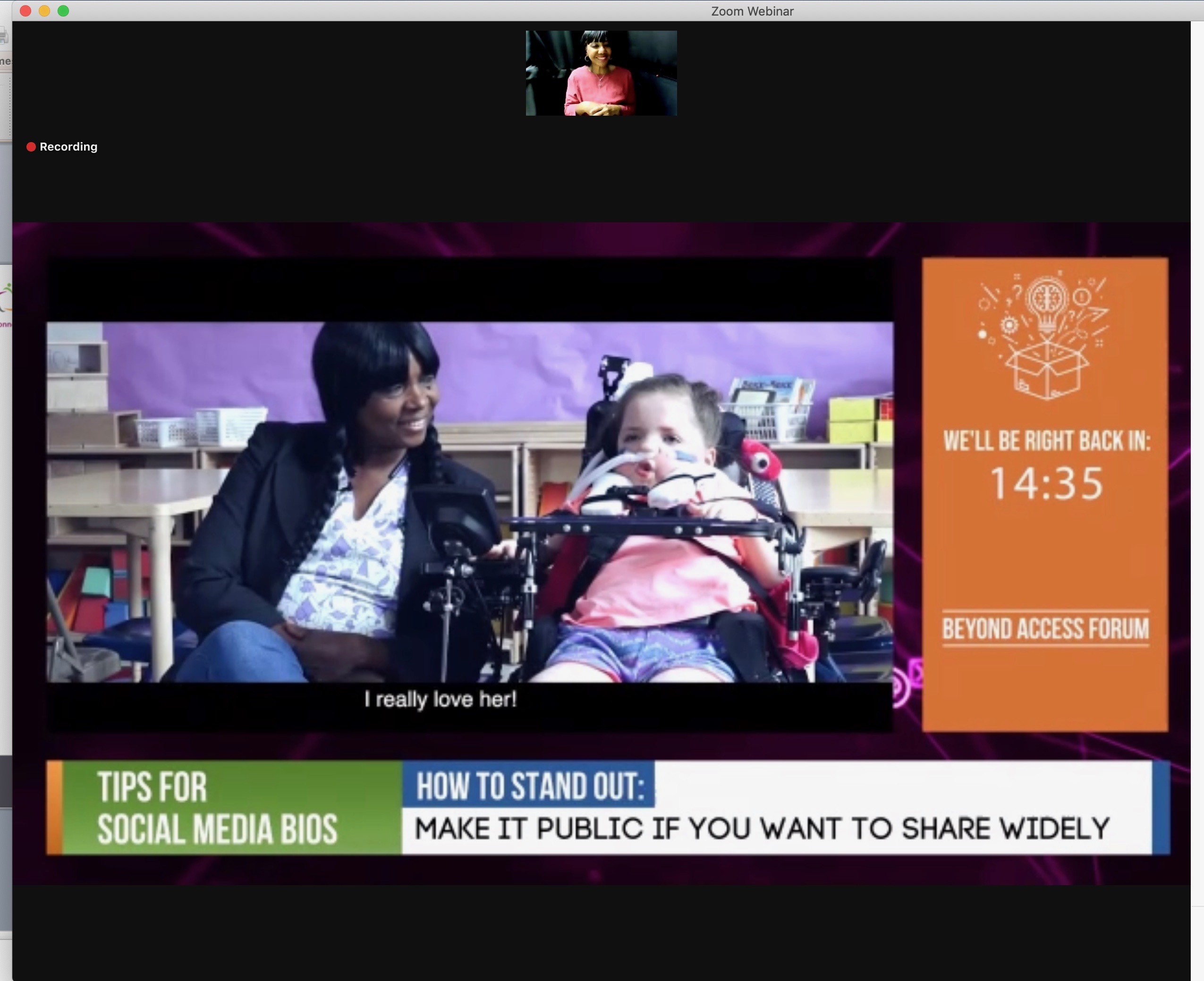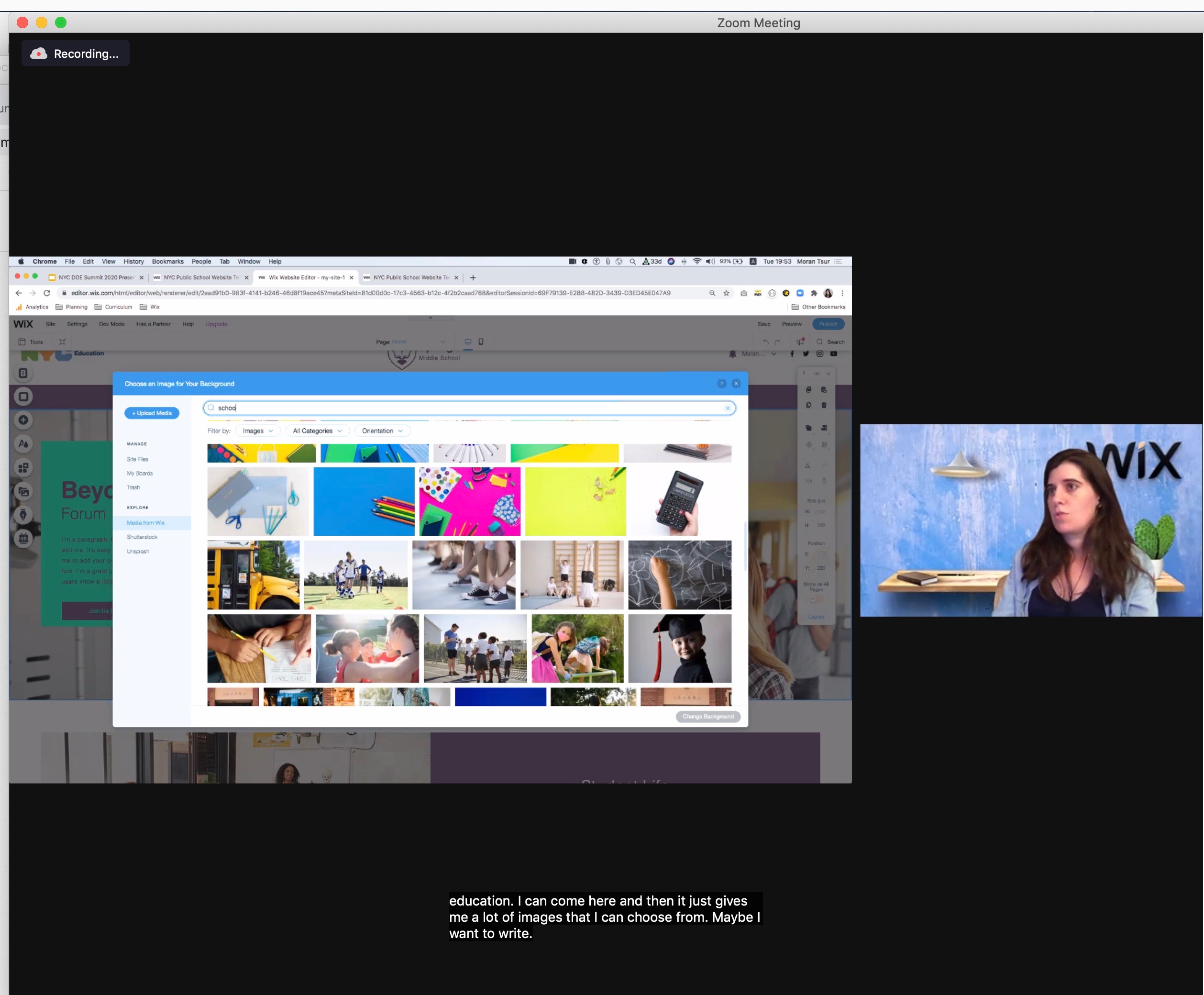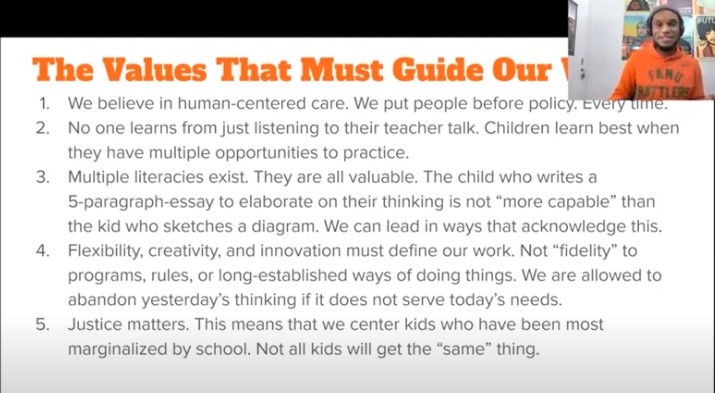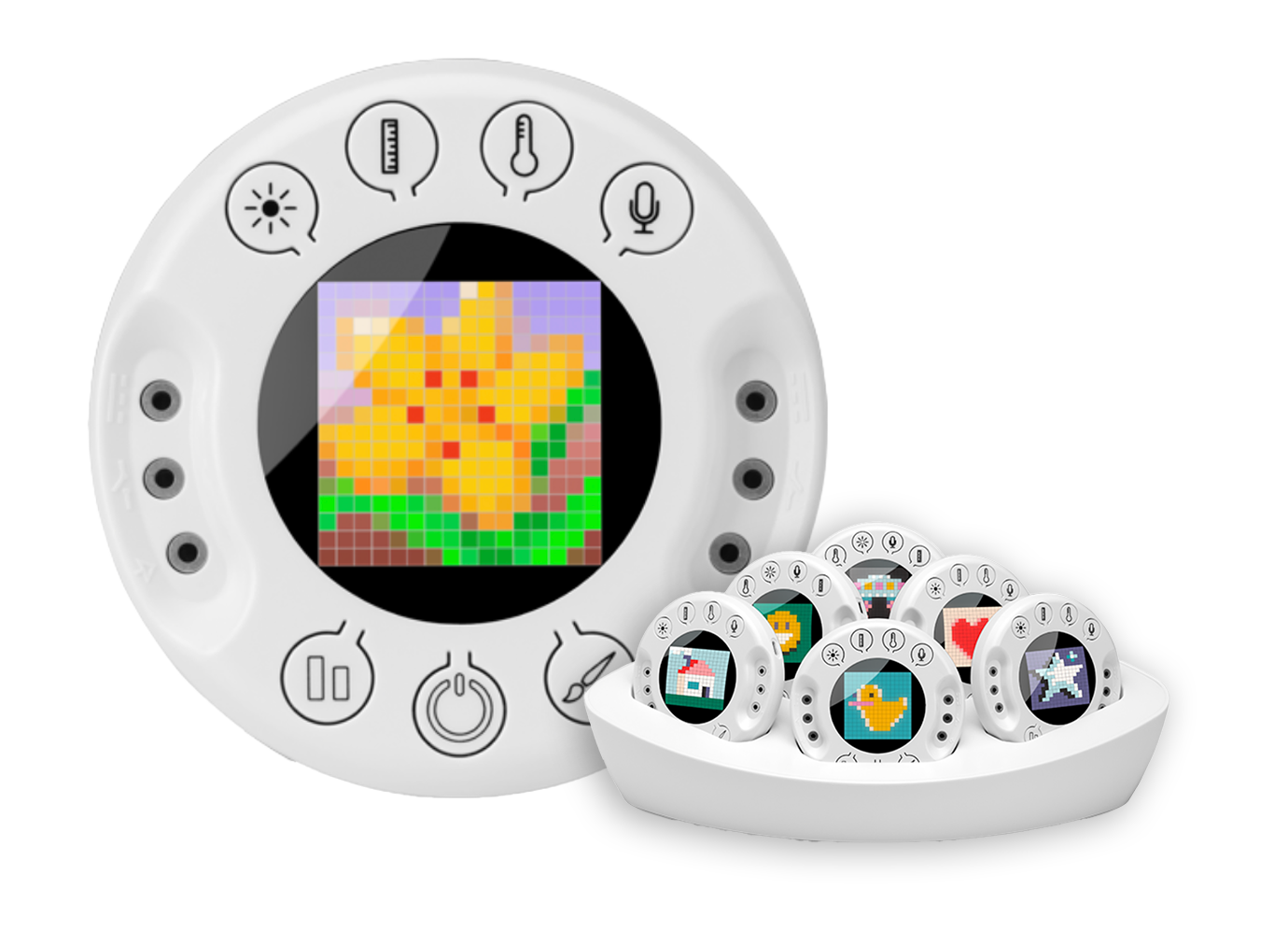NYC DOE Beyond Access Forum Provides Professional Development Around Inclusive and Individualized Education
Virtual conference highlights collaboration, communication, and innovation to help support education for all students

Tech & Learning recently partnered with the New York City Department of Education (NYC DOE) to offer the Beyond Access Forum: Inclusive and Individualized Education, an interactive and thought-provoking virtual event focused on digital accessibility, inclusion, and teaching information fluency.
The virtual event was a result of a special partnership between the Division of Specialized Instruction and Student Support, the Division of Instructional Information Technology, and the New York City School Library System. “This partnership ensures that conversations around inclusion, individualized education, and accessibility are happening across the DOE at all levels,” said Jose Rios Lua, Director of Family Empowerment and Communications, during the opening remarks.
Partnerships, sharing, equity, and inclusion were all major themes for the day.
“This pandemic has been an exercise in understanding our interdependencies,” said Christina Foti, Deputy Chief Academic Officer, NYC DOE. “Interdependence embodies the belief that every child benefits from being part of a community that is rich in diversity.”
Watch the full welcome
‘School is weird right now’
Drawing nearly 2,000 remote attendees, the day featured 25 professional development sessions spread along three main tracks: special education, digital inclusion, and libraries. Three more tracks were dedicated to PD-focused presentations from some of the Beyond Access Forum’s 25 partner solutions who supported the event.
Sessions covered assistive technology and support, including subjects such as accessible website platforms, designing accessible digital content, instructional resources for teaching information fluency and digital literacy, and transition planning. Attendees were also able to engage in discussions and workshops, network with one another, share best practices and strategies, and connect with industry leaders.
Tech & Learning Newsletter
Tools and ideas to transform education. Sign up below.
Of course, much of the focus was on addressing accessibility and inclusion in remote and hybrid learning, and the challenges involved. “Now that we’re working so much with digital content, it’s now more important than ever that we create content that is accessible to everyone, including those with disabilities and those who speak languages other than English,” said Lisa Nielsen, Senior Director Digital Literacy & Inclusion.
That was echoed by Laura Ogando, Program Manager Digital Literacy & Inclusion, who also lauded teachers for their incredible dedication and hard work over the past few months, and reminded them to have a little fun, too.
“School is weird right now,” Ogando said. “Students are not able to play or interact in the ways they’ve done previously, so it’s important that we don’t lose sight of this quality.” She implored educators to laugh along with students and build connections in the process. “Let them see that silly side of you,” she said. “Play virtual games, let the first few minutes of Zoom meetings be for catching up. And don’t be afraid to let them see you make mistakes.”

New approaches for a new world
Cornelius Minor, Brooklyn-based educator and literacy activist, talked about how educators are trying to do more than ever before under extraordinary circumstances, and are in an incredibly stressful situation.
“As I’ve been working the past few weeks, one thing I’ve learned is that we can’t pass this stress on to children by doing to them what the world is doing to so many of us educators,” Minor said. He added that, “Expecting kids to do the same amount of work as in the past is a flawed expectation. We can still have high expectations for kids, but those expectations also have to be humane and realistic and flexible.”
Educators and students also need to adjust their energy and focus to these new learning environments. “Giving 100% of my energy to every task is not sustainable for me, nor is it sustainable for kids,” Minor said. “Rationing energy isn’t irresponsible or lazy, but what responsible people do in extreme situations.” He explained how it can be an investment in the future, and discussed how he intentionally spreads his energy and focus throughout the week so he’s not spent by Friday. “No community needs a tired teacher, but we can’t be at 100% every day,” he said.
Minor also encouraged teachers to allow students to use technology to direct some of their own learning, as it’s good for both educators (providing a break) and for the students (asserting independence). “In a physical classroom, we would never talk to kids for 40-minute stretches, but we’re doing something like that in Zoom now,” he said. Repurposing physical classroom methodologies for virtual classes is critical.
Finally, he discussed the values that should guide education.

And although this year’s event was virtual, the enthusiasm from the presenters and attendees was strong all day long, as always.
“Our dedication to learning, collaboration, libraries, and our New York City students has not ended,” said Melissa Jacobs, Director of Library Services, NYC DOE and NYC School Library System. “It just looks a little bit different.”
Educators can access the on-demand content by registering for free here.
Ray Bendici is the Managing Editor of Tech & Learning and Tech & Learning University. He is an award-winning journalist/editor, with more than 20 years of experience, including a specific focus on education.
